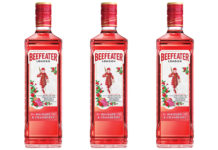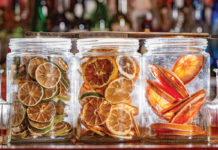Products should cater to all wallets and tastes, say drinks firms

COVERING a variety of price points and categories is essential when building a successful spirits portfolio, say drinks firms.
And these factors are just as important to licensees as to brand owners.
Distributors and drinks companies have advised licensees to give careful consideration to the range of spirits and liqueurs on their back-bars, making their range specific to the outlet while ensuring a variety of price points are catered for.
Julie Ingham, head of marketing at Continental Wine and Food (CWF), which sells and distributes a range of wines, spirits and liqueurs in the UK, said this is particularly true at a time when some consumers are feeling more positive about the economy, while others continue to struggle.
It is crucial that operators choose from good quality value for money options.
“For the first time in what feels like many years, there are very strong indications that the worst of the recession is over, however while this may be true for some consumers, for others every penny matters,” said Ingham.
“It is crucial, therefore, that operators can choose from good quality value for money options as well as the more expensive brand leaders.”
Ingham’s comments were echoed by Roy Summers, head of category management at First Drinks, distributor of brands such as Glenfiddich, Hendrick’s and Sailor Jerry, who said that any successful spirits range, regardless of the category, should include mainstream as well as premium products.
“It is important to stock a range of category favourites at different price points to meet varying consumer budgets,” he said. “Stocks should include mainstream variants as well as premium brands.
“Consumers wish to treat themselves when they go out and so this option is essential.”
However, selecting the right product range is about more than just picking one cheaper and one more expensive product.
Tailoring the offer and selecting the right brands for your consumers is key, say drinks firms.
“It depends on the venue and on their consumers,” said Rob Curteis, head of marketing at Proximo Spirits, the firm behind The Kracken Black spiced rum, Boodles gin and Jose Cuervo brands in the UK.
“Different price points is key, but not every bar should list the most expensive and the cheapest products,” he said.
“A few trade-up options is really important, and commercially beneficial for operators. Consumers in general are looking more and more for exciting and new brands or variants, but they want them to be authentic and of high quality.
“However, some well-established brands with great heritage behind them are enjoying revivals at the moment.
“There are different schools of thought for how best to display brands, but clearly the more visible the bottle, the more likely someone is to order it.”
Choosing between a large range of products or a smaller selection will also depend on the outlet, according to James Shelbourne, sales and marketing director at Love Drinks, distributor of brands that include Gosling’s rum, Hayman’s gin and Jefferson’s rye.
Some well-established brands with great heritage behind them are enjoying revivals at the moment.
“How these are managed comes down to the personality of the venue and it’s customers, for example having a tightly-focused list works for new starters, foodie pubs or some hotels, whereas grand sweeping back bars work for those who offer table service.
“We always offer a three-tiered approach to our customer base, offering a simple serve, a classic serve and a creative serve as potential menu options.”
Tapping into popular consumer trends is a key aspect of creating a product range, said Ian Peart, on-trade channel director for spirits at drinks firm Pernod Ricard UK.
He said that a strong spirits offer “consists of brands that differentiate themselves from others and offer variety, premium quality and versatility”.
And selecting spirits and liqueurs which are versatile enough to be used as cocktail ingredients was highlighted as an increasingly important factor by Terry Barker, director of marketing at Cellar Trends, UK distributor of brands such as Luxardo and Pusser’s rum.
“The size and growth of cocktails has been seriously underestimated,” said Barker.
“Cocktails are now asked for and served in many pubs in Scotland where previously it would have been thought too sophisticated.
“Cocktails have opened opportunities for pubs to find new drinks income.”























